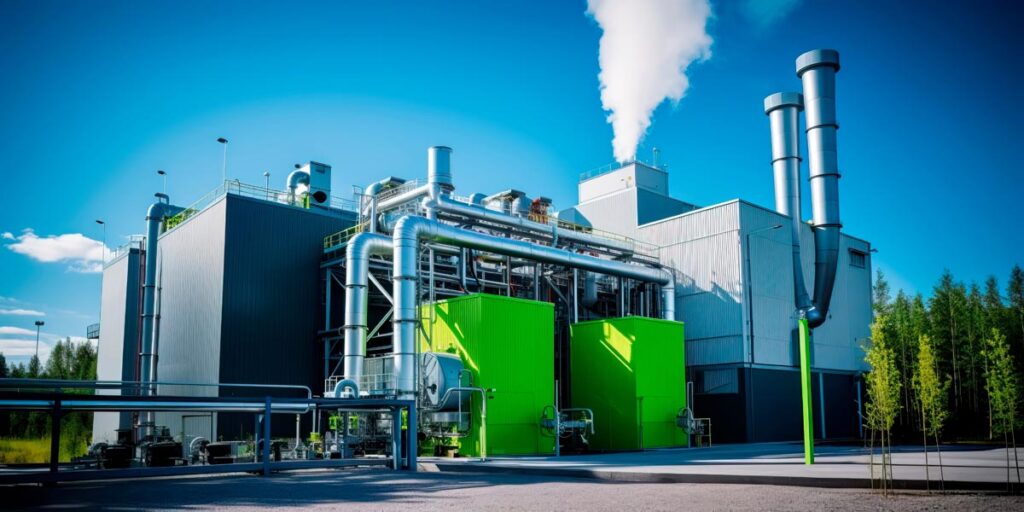Product Carbon Footprint Reduction in the Smart Factory

Reducing the carbon footprint of products is a priority for companies, especially those operating in the industrial sector. Smart Factories are leading the way towards a more sustainable world with strategies and solutions that minimize environmental impact.
Tabla de contenidos
ToggleDiscover how Smart Factories are reducing product carbon footprint. Learn about the technologies and strategies used to achieve more sustainable production.
To reduce the product carbon footprintSmart Factory or intelligent factory is implementing a set of technologies that allow from a intelligent waste management to a reduction of energy consumptionachievements of the resilient and sustainable factories which translate into an appreciable improvement of the environmental impact of production.
As the industrial sector is one of the largest emitters into the environment, sustainability in manufacturing is an increasingly important element in industrial environments. The organizations that make up this sector are under increasing pressure to implement sustainable practices that include efficiency in the use of resources in the factory and the incorporation of sustainable production elements.
Carbon footprint measurement
It is clear that the concepts of Industry 4.0 and sustainability go hand in hand. The Smart Factory emerges as an indispensable element to address the challenges caused by climate change by leveraging technology to improve production processes, enable a reduction in carbon emissions or incorporate clean technologies in industry.
The first step to reduce the carbon footprint of a product is to measure its carbon footprint, since the data obtained will allow the definition of the optimal strategy to reduce it. A solution such as Smart Factory by aggity plays a key role in this process, as it enables real-time data collection and detailed analysis for subsequent decision making.

The platform integrates a series of tools that take advantage of the the power of technologies such as the Internet of Things (IoT). thanks to sensors scattered along the entire production chain to collect data on the energy consumptionthe greenhouse gas emissions and other relevant environmental indicators. The data collected is transmitted to centralized platforms, where artificial intelligence is applied to improve production; in other words, a set of algorithms is in charge of processing it to identify areas for improvement in terms of efficiency and sustainability.
Process optimization
One of the advantages of Smart Factories is that they achieve maximum energy efficiency in production. energy efficiency in production thanks to process optimization. Thus, the use of process automation tools through robots and autonomous systems increases efficiency, and at the same time, minimizes energy consumption and improves waste management in the smart factory, which also helps to reduce waste.
Real-time monitoring, meanwhile, allows smart factories to constantly assess their environmental performance. The incorporation of energy management systems provides detailed information on the use of resources and, with the information obtained, the Smart Factory managers can implement changes in the processes with the aim of reducing the carbon footprint.

Traceability and transparency
The fact that customers are also becoming increasingly aware of the use of sustainable materials in the manufacture of products is leading to numerous innovations in manufacturing. Companies are increasingly looking at the materials they use in manufacturing or ease of recycling when designing their products and packaging. In this way, they contribute to improving sustainability and also to building customer loyalty.
Traceability and transparency in the supply chain play a prominent role here, enabling customers of industrial companies to trace the origin of materials and assess the environmental impact at each stage of manufacturing. Thanks to the use of technologies such as blockchain or RFID, the Smart Factory can record and verify every step of the manufacturing and distribution process.
Últimos posts

IBM Think 2024 bets on Generative Intelligence and It Automation solutions

aggity participates in the “Mobility Dialogues” meeting organized by IN-MOVE by Railgrup

aggity appoints Diego Viudes as new commercial director for the spanish business

Key developments in green innovation

Aggity signs a commercial agreement with Sener to address energy efficiency and decarbonization projects in the industrial sector.

“Sustainability, without data, is simply a pipe dream.”

Improvements in corporate data protection





